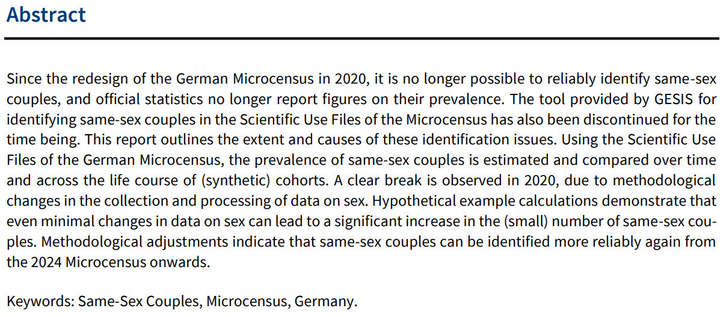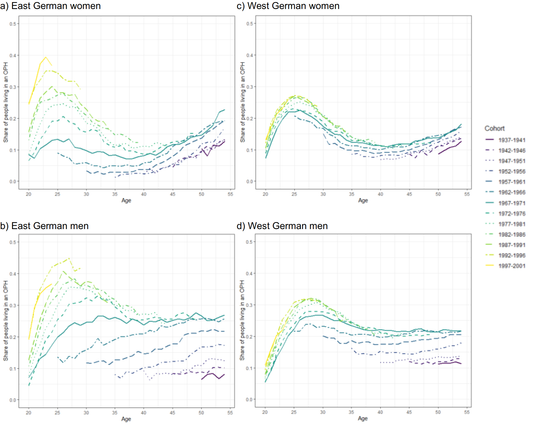Here is a new interesting @GESIS paper by our team colleague Andrea Lengerer on the problem of identifying same-sex partnerships in the German Microcensus https://www.ssoar.info/ssoar/handle/document/102224 #Microcensus
#Microcensus
The number of one-person #households in #Germany has steadily increased since reunification. A #decomposition of German #Microcensus data from 1991 to 2021 suggests shifting mechanisms driving this trend in both East and West Germany.
https://www.demographic-research.org/articles/volume/52/32
Client Info
Server: https://mastodon.social
Version: 2025.04
Repository: https://github.com/cyevgeniy/lmst

